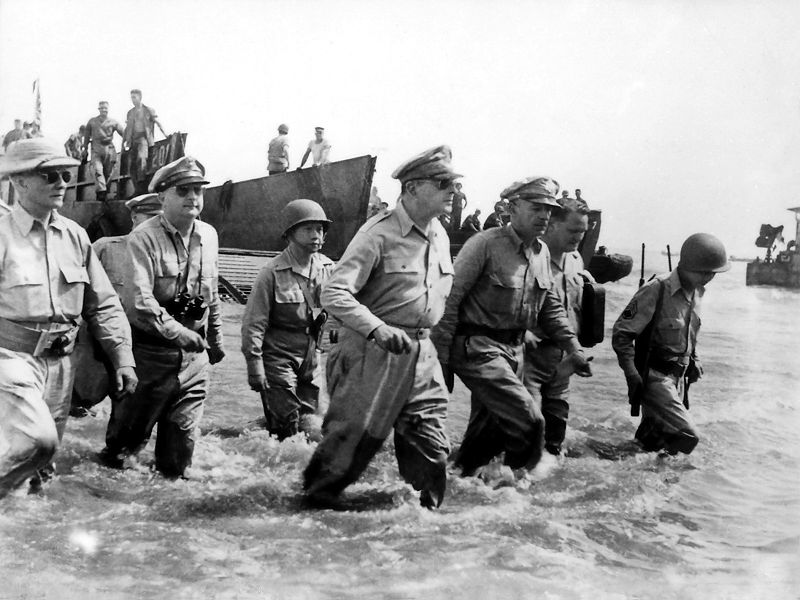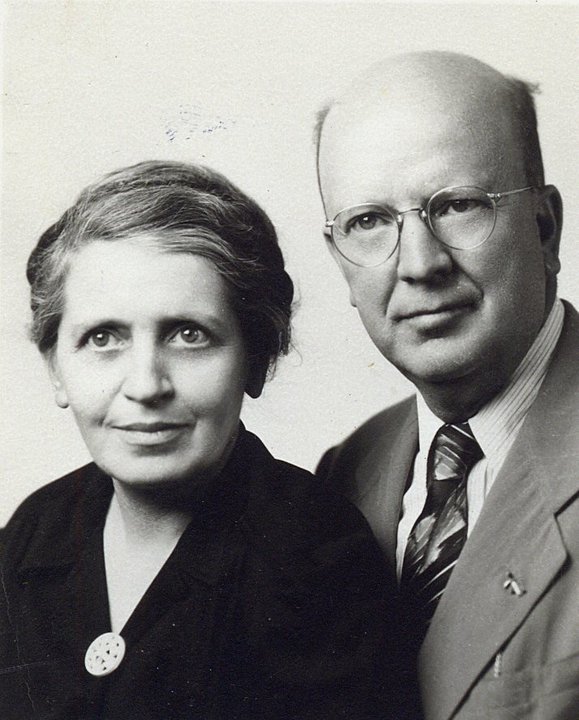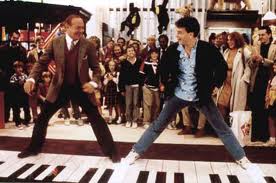
The mainstream media is almost breathless with the shocking revelation that after World War II, Allied Supreme Commander Douglas MacArthur thought that Japan needed Jesus.
In this day and age — when it is unthinkably politically incorrect to even whisper that Christianity is true, that Jesus is, indeed, the only Way, the idea that a historical figure such as General MacArthur thought so, too, is … scandalous!
However, in this case, the stunning revelation is not even news. In the late 1940s and throughout the 1950s, MacArthur spoke freely that post-war Japan was in a spiritual vacuum. All its gods had failed — its invincible military, its divine emperor, its 1,000-year belief that the Land of the Rising Sun would rule the world.
Now the conquered people of Japan had nothing.
MacArthur, sent out word: “Send missionaries,” he pleaded to a number of religious groups, “And Bibles.”
He made no secret of it, either. In 1955, MacArthur told U.S. News and World Report, “No phase of the occupation has left me with a greater sense of personal satisfaction than my spiritual stewardship.”
“Over the next five years, some 5,000 missionaries from all different kinds of churches went to Japan,” writes Dr. Jeff Sanders. “The land was flooded with millions of Bibles.”

My grandfather, the late Owen Still, had been a missionary in pre-war Japan. He got his family out of Tokyo on one of the last ships before Pearl Harbor, then spent much of World War II in Japanese internment camps in California and Arizona, serving as a volunteer chaplain to Japanese-Americans forced to spend the war behind barbed wire.
After the Japanese surrender, he was one of the first civilians allowed back into Tokyo since he spoke fluent Japanese. The firebombing of the city had been so devastating that it was difficult to identify neighborhoods much less streets or buildings — which had been constructed mostly of wood with interior walls made of paper.
My grandfather had trouble even finding the Yotsuya Mission where he had preached for a decade — so complete was the destruction. In the city of Osaka, Hiromu Sugano, a devout Christian and retired Army captain, had built a shack on the church property there so that the land was occupied until the missionaries returned. If he had not done so, the property could have been lost. In Tokyo, my grandfather was gratified to find that many of the native pastors, including Stephen Ijima, had survived the war — and their congregations were going strong.
MacArthur saw that my grandfather received a temporary military commission, allowing him to move freely and helped my grandparents find an apartment in the Setagaya Ku neighborhood of Tokyo. My grandfather got the mission’s churches and Bible college back up and running — knowing that the permanence of the Gospel in Japan depended on native-born pastors.
“Japan was devastated,” writes Dr. Sanders. “In the summer of 1945, much of the nation had been leveled by the incessant bombing of American airpower. So, MacArthur did something else that is almost lost in history. He knew that they had been devastated. And they now saw that their emperor was not a god. He was only a man. A man who had been defeated.”
MacArthur pleaded for missionaries.
His doing so was well documented in such books as John Gunther’s The Riddle of MacArthur (1951), Japan’s American Interlude by Kazuo Kawai (1960) and Arthur Schlesinger’s The MacArthur Controversy and American Foreign Policy (1965) and in articles such as the February 4, 1955 U.S. News and World Report‘s “Bringing the Bible to Japan.”
But in today’s politically correct atmosphere, this is suddenly big news and a startling controversy.
A new book on post-war Japan says Gen. Douglas MacArthur sought to fill the country’s “spiritual vacuum.” In his 1945 Under the Shadow of the Occupation: The Ashlar and The Cross, Japanese investigative journalist Eiichiro Tokumoto documents MacArthur’s efforts to persuade missionaries to intensify their efforts. “There was a complete collapse of faith in Japan in 1945 — in our invincible military, in the emperor, in the religion that had become known as ‘state Shinto,”‘ Tokumoto writes.
“A number of documents Tokumoto used for research were declassified only recently, including accounts of a 1946 meeting between MacArthur and two U.S. Catholic bishops,” reports one news service in shocked tones. It then quotes the book: “‘General MacArthur asked us to urge the sending of thousands of Catholic missionaries — at once,’ Bishops John F. O’Hara and Michael J. Ready later reported to the Vatican. MacArthur told them that they had a year to help fill the ‘spiritual vacuum’ created by the defeat.”
In the wake of the missionaries’ efforts, the Bible became a best-seller in Japan.
My grandfather used to lament how America had missed an enormous opportunity. Somehow, a better job was done in South Korea, which today has a strong church — so vibrant that it has some of the largest congregations in the world. The Korean church is sending missionaries worldwide, including to Japan and, yes, to America.
Just how far the United States has slidden into the abyss of secularism and political correctness is well demonstrated by the “tsk, tsk” tone of the coverage of this new “scandal.”
The underlying tone: How dare an American leader think that the Gospel of Jesus Christ is better than anybody else’s religion!
How much better it would be to applaud the vision of a great American general.

